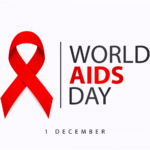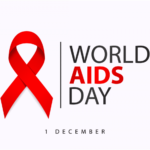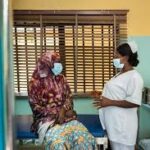The Rise of Non-Communicable Diseases in Africa

When people think of Africa’s health challenges, infectious diseases like malaria, HIV/AIDS, and tuberculosis often come to mind. Yet today, a quieter but equally dangerous health crisis is spreading across the continent: non-communicable diseases (NCDs). Conditions such as diabetes, cancer, hypertension, and chronic respiratory illnesses are rising at alarming rates. Driven by urbanization, lifestyle changes, and limited healthcare access, NCDs now account for over 37% of all deaths in Africa according to the World Health Organization (WHO).
This article explores the growing threat of NCDs in Africa, the factors fueling their rise, and strategies to prevent a health crisis that could overwhelm the continent in the coming decades.
What Are Non-Communicable Diseases?
Non-communicable diseases are long-term, non-infectious health conditions often linked to genetics, lifestyle, and environmental factors. Unlike infectious diseases, they cannot be passed from person to person but develop gradually over time.
The most common NCDs in Africa include:
-
Cardiovascular diseases – heart disease, stroke, hypertension.
-
Diabetes – type 2 diabetes linked to poor diet and inactivity.
-
Cancer – breast, cervical, prostate, and liver cancers are prevalent.
-
Chronic respiratory diseases – asthma, COPD, and pollution-related illnesses.
Why NCDs Are Rising in Africa
1. Urbanization and Sedentary Lifestyles
As more Africans move to cities, traditional active lifestyles are being replaced by sedentary work, less physical activity, and reliance on motorized transport.
2. Unhealthy Diets
Increased consumption of processed foods, sugary drinks, and fast food has replaced nutrient-rich traditional African diets. This shift contributes to obesity and diabetes.
3. Tobacco and Alcohol Use
Aggressive marketing from global tobacco and alcohol companies has increased consumption rates, fueling cancer, liver disease, and cardiovascular problems.
4. Environmental Pollution
Rapid industrialization and urban traffic lead to high levels of air pollution, worsening respiratory diseases such as asthma and chronic bronchitis.
5. Limited Access to Healthcare
Most African health systems are still structured to fight infectious diseases. Early screening and treatment for NCDs remain scarce, causing many cases to go undetected until too late.
The Human and Economic Cost
The rise of NCDs doesn’t just affect individuals—it affects families, communities, and national economies. Healthcare costs increase, productivity decreases, and families face financial ruin from prolonged medical care. By 2030, NCDs are expected to overtake infectious diseases as Africa’s leading cause of death, creating a dual health burden.
Solutions to Combat NCDs in Africa
1. Promoting Healthy Lifestyles
Governments and NGOs must encourage exercise, healthier diets, and reduced alcohol and tobacco consumption through public awareness campaigns.
2. Early Detection and Screening
Mobile health technologies and community-based clinics can help detect hypertension, diabetes, and cancer earlier, improving survival rates.
3. Affordable Healthcare Access
Scaling up universal health coverage will ensure treatment for NCDs is not a privilege for the wealthy but accessible to all.
4. Policy and Regulation
Tighter laws on tobacco, alcohol, and sugary drink sales can reduce risk factors for NCDs. Subsidizing fruits and vegetables can also improve access to healthy food.
5. Leveraging African Traditions
Traditional African diets—rich in grains, vegetables, and plant proteins—offer natural protection against many NCDs. Reviving these diets can be part of the solution.
Conclusion
The rise of non-communicable diseases in Africa is a silent crisis that demands urgent action. Left unchecked, NCDs threaten to reverse decades of progress made against infectious diseases. By embracing prevention, promoting healthy living, and reforming healthcare systems, Africa can fight back against this looming epidemic and secure a healthier future for generations to come.
Written by Fawzi Rufai, Medically Reviewed by Sesan Kareem



